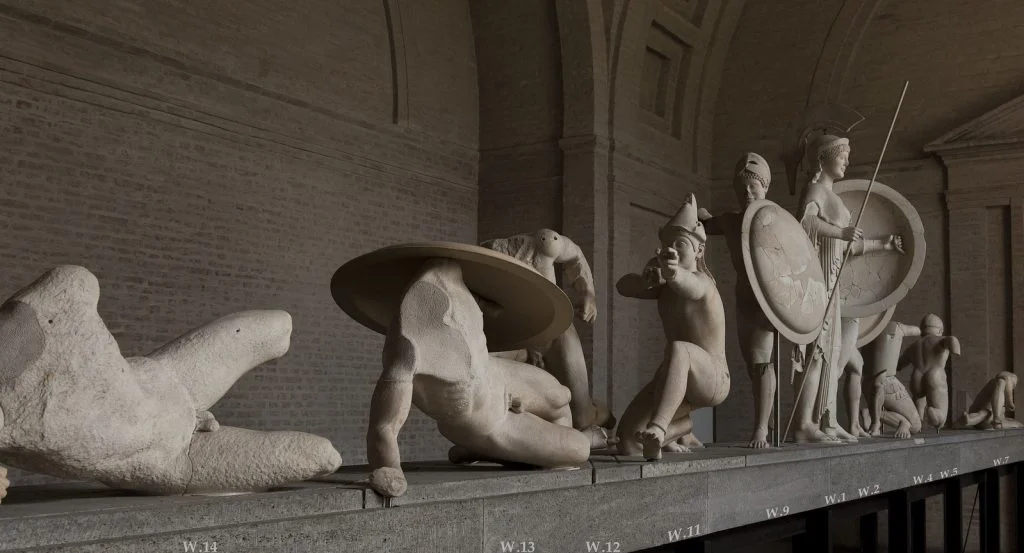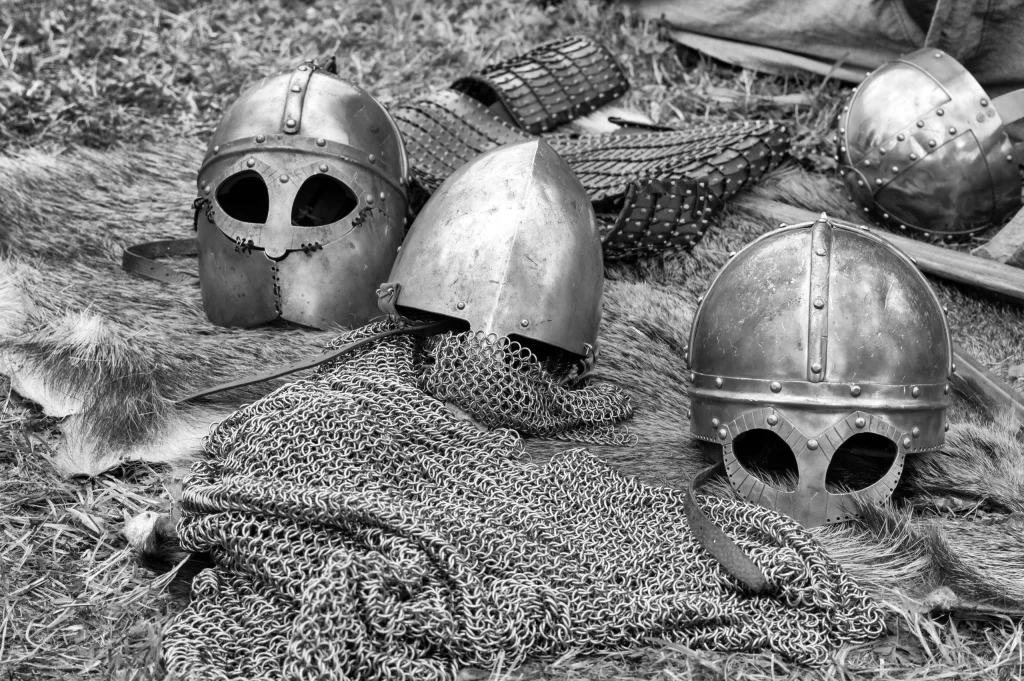I can still hear my grandma’s voice, weaving tales of ancient warriors as I nestled at her feet. The Persian Wars weren’t just stories to her, they felt alive, filled with passion and drama. Inspired by her tales, I backpacked through those very battlefields in my twenties, each step stirring up the dust of ages past.
The taverns, the laughter, the debates with locals about what really happened… it was like touching history. Ever get that feeling where a story tugs at your heartstrings? Ready for a deep dive? Here are 50 facts about the Persian Wars that might just reignite that spark. Let’s rediscover history, shall we?
Molon labe
Leonidas
Persian Wars Facts
Let’s take a walk through all these facts together. Stick around till the end, and you can show off with a quiz I’ve cooked up! Read carefully, and don’t disappoint me.
- The Persian Wars refer to a series of confrontations between the Achaemenid Empire (Persia) and Greek city-states throughout the 5th century BCE.
- Starting in 499 BCE, the Ionian Greeks rebelled, triggering conflicts with Persian rule.
- Persian King Darius I initially aimed to subdue the Greeks, beginning the first series of attacks.
- The significant Battle of Marathon in 490 BCE saw a pivotal victory for Athens and its allies against Persian forces.
- According to myth, Pheidippides, an Athenian messenger, ran from Marathon to Athens to announce this victory.
- The modern sport of marathon running in the Olympics celebrates the famed “Marathon Run”.
- In 480 BCE, Xerxes, Darius’ son, orchestrated a major invasion of Greece.
- Xerxes’ assembled army was one of the largest of ancient times.
- The narrow pass at Thermopylae witnessed the brave stand of 300 Spartans under King Leonidas against Persian forces.
- Despite heavy losses, the Persians eventually overcame the Spartans at Thermopylae.
- Simultaneously, Greek naval forces held off the Persian navy at Artemisium.
- After evacuating Athens, Persian forces invaded and destroyed the city.

- In 480 BCE, the Greeks, under Themistocles, decisively defeated the larger Persian naval fleet in the Battle of Salamis.
- Xerxes watched the battle from the shore, expecting a Persian victory.
- Following Salamis, Xerxes retreated with much of his army, leaving Mardonius to command the remaining forces in Greece.
- The united Greek forces defeated the Persians in the Battle of Plataea in 479 BCE, ending the Persian invasion.
- On the same day, the Greeks also triumphed in the naval battle at Mycale.
- The formation of the Delian League post-war aimed to defend against future Persian threats.
- Managed by Athens, this league evolved into the Athenian Empire, setting the stage for the Peloponnesian War.
- These conflicts significantly influenced the historical and cultural paths of both the Persian and Greek civilizations.
- The works of Aeschylus, especially “The Persians,” reflect themes from these wars.
- Herodotus, often called the “Father of History”, thoroughly recorded the Persian Wars in his writings.
- The wars highlighted the stark differences between Greek freedom and Persian monarchy.
- Famous sayings from these times, like Leonidas’ “Molon labe” at Thermopylae, have been immortalized.

- The wars inspired later European generations as a symbol of democracy’s stand against autocracy.
- Strategic use of terrain, evident in battles like Thermopylae and Salamis, played a crucial role in the conflicts.
- The Greeks’ use of the double envelopment maneuver was key to their victory in the Battle of Marathon.
- Religious elements were prominent, with both sides seeking and interpreting divine support in their victories.
- The Greeks honored their triumphs with architectural wonders, such as the Athenian Parthenon.
- Post-war, Athens experienced a cultural and political renaissance.
- Former allies Athens and Sparta became adversaries, leading to the Peloponnesian War.
- Some Greek city-states, known as the Medizers, sided with the Persians during the conflicts.
- After the wars, Persian culture and military incorporated Greek influences.
- The Hellespont Bridge, constructed by Xerxes, is renowned for its engineering ingenuity, aiding the Persian invasion of Europe.
- Themistocles, an Athenian strategist, played a crucial role in defending against Persian invasions.
- Themistocles later lost favor in Athens, leading to his exile in Persia.
- The Persian army was noted for its archery, while the Greeks excelled in the hoplite phalanx formation.
- Post-war shifts in power dynamics elevated Athens as a leading naval force among Greek city-states.
- Athens’ naval prowess was largely attributed to their wartime experiences and Themistocles’ leadership.

- Later Persian rulers, like Artaxerxes, preferred diplomatic approaches to Greek affairs over military action.
- After their setbacks, Persia refrained from further military campaigns in Greece.
- Historical discourse often speculates how Western civilization might have evolved had Persia succeeded over Greece.
- The Wars are sometimes seen as an East-West conflict, though historical realities were more nuanced.
- The importance of naval warfare was highlighted in battles such as the Battle of Salamis.
- Films like “300,” while fictionalized, recount the events of the Persian Wars.
- The Greco-Persian Wars lasted nearly half a century, concluding with the peace of Callias in 449 BCE.
- Athens and Sparta were the primary Greek participants in these conflicts.
- For Persia, these wars were minor disturbances on the edges of their vast empire.
- The end of the Persian Wars marked the beginning of intense Athenian-Spartan rivalry, culminating in the Peloponnesian War.
- The wars also encouraged significant cultural exchange between Greek and Persian societies.
Persian Wars Myths

Now that we’ve finished with the facts, let’s go a little deeper into the events of the Persian Wars and separate some common myths from the actual facts.
- The Persians Were Barbaric and Unsophisticated Invaders.
Fact: The Persian Empire had rich achievements in various fields and was highly advanced. Their invasion of Greece was based on strategic interests, not mere barbarism. - The 300 Spartans Were Alone at Thermopylae.
Fact: The 300 Spartans had support! Thousands of Greek allies from various city-states stood with them against the Persians at Thermopylae. - The Persian Wars Were Solely Between Persia and Athens.
Fact: It was a team effort! Various Greek city-states, including Sparta and Corinth, united to resist the Persian invasions. - Xerxes Was a Ruthless and Inept Leader.
Fact: Xerxes I was an accomplished leader. Popular culture might paint him as a despot, but his reign showcased effective leadership and administration. - The Persian Wars Ended with the Battle of Salamis.
Fact: The wars continued beyond Salamis. Peace finally came with the Peace of Callias years later, ending the Greek-Persian hostilities.
No products found.
Persian Wars FAQ

After all these facts and myths, there are still some questions that need an answer. Here are some of the most frequently asked questions online about the topic.
- How many Persian Wars were there?
We dive straight in! So, there were two main showdowns between the Greek city-state heroes and the massive Persian Empire. The first tussle was between 492-490 BCE, and they had a rematch between 480-479 BCE. - How long did the Persian War last?
You’d think with a name like “The Persian Wars,” it went on forever, right? But in reality, if you add up all the action, it spanned about 13 years, from 492 BCE to 479 BCE. That said, they did take some breaks between the big clashes. - Who won the Persian-Greek War?
The Greeks! They managed to pull off some epic wins, with highlights like the Battle of Marathon during round one and the come-from-behind victories at Salamis and Plataea in the sequel. - Why did the Persian Wars begin?
The Greeks living in Asia Minor (which was under Persian rule) thought, “We’ve had enough!” and kicked off the Ionian Revolt around 499-494 BCE. This rebellion ruffled the Persian feathers, and they decided, “Why not conquer all of Greece while we’re at it?” - How did the Persian War end?
Every story has its climax, and for the Persian Wars, it was the Greeks singing their victory songs after the Battles of Salamis and Plataea. After these stinging defeats, the Persians thought better of trying to tackle Greece head-on again.
Persian Wars Famous Quotes

The accounts by historians, especially Herodotus, provide us with some famous quotes. The Persian Wars are associated with these five notable ones.
- King Leonidas to Xerxes.
When Xerxes wrote to King Leonidas of Sparta demanding that the Greeks surrender their weapons, Leonidas famously replied, “Come and take them” (often rendered in Latin as “Molon labe”). - Themistocles’ strategy.
Themistocles, the Athenian general, upon seeing the massive Persian navy, remarked about the necessity of fighting them at sea in a narrow space to negate the Persians’ numerical advantage. He said something to the effect of, “Our enemies cannot escape us now. Look, they are trapped.” - Xerxes on his army.
While watching his massive army cross the Hellespont, Xerxes is said to have wept. When asked why, he replied, “I was moved to compassion when I considered the shortness of human life and that of all this host of men, not one will be alive a hundred years hence.” - Dienekes on the Persian arrows.
According to Herodotus, when a Spartan warrior named Dienekes was told that the Persian archers were so numerous that their arrows would block out the sun, he remarked, “So much the better, we shall fight in the shade.” - Themistocles’ message to King Xerxes.
As part of a ruse to divide the Persian fleet, Themistocles sent a message to King Xerxes, claiming he was on the Persian side and offering advice. He wrote, “The Greeks are afraid and are planning to slip away. They will try to escape by sea… Now you can achieve what no one would expect. If you prevent their ships from escaping, you can capture all of their troops.” This was a ploy by Themistocles, and the subsequent naval battle at Salamis resulted in a major victory for the Greeks.
No products found.
Persian Wars Quiz

Ready to test your knowledge of the Persian Wars? Beware: get them all wrong, and we might just send a Spartan to your next yoga class. I’m kidding.
Conclusion
The Persian Wars shaped the trajectory of Western civilization in ways that still resonate today. As we reflect on the flow of empires and the indomitable spirit of the Greeks, we must ask ourselves: How do past conflicts shape our modern understanding of identity and unity? What lessons can we draw from those tumultuous times? Your thoughts?
2 Sources Used For This Article

